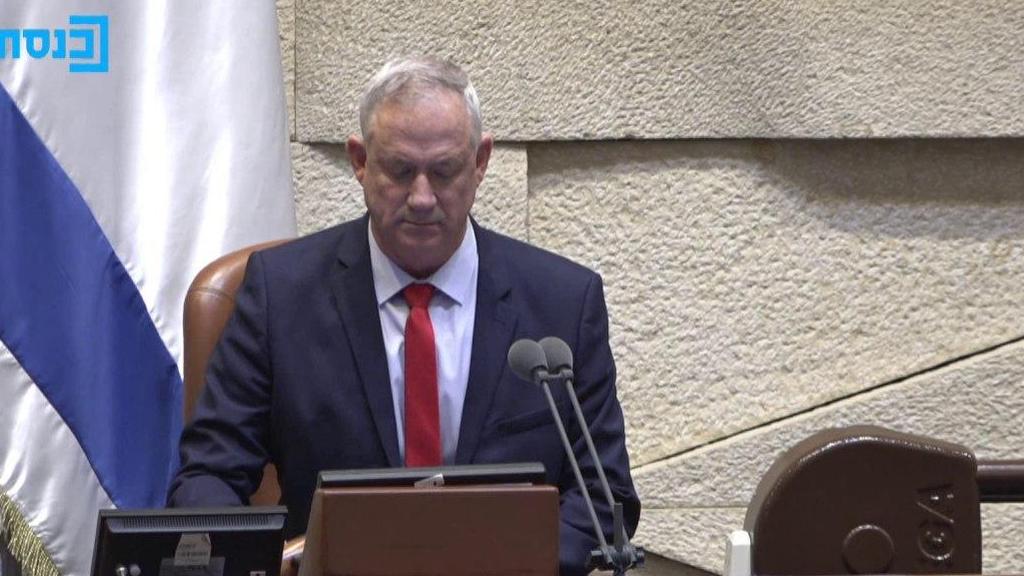Getting your Trinity Audio player ready...
Israel appeared headed for a unity government on Friday after opposition leader Benny Gantz moved towards an agreement with Prime Minister Benjamin Netanyahu, disappointing voters who had hoped to bring down the right-wing premier.
Gantz was elected parliamentary speaker on Thursday with support from Netanyahu's Likud and allied parties, leaving many of his own partners furious over the possibility he could form an alliance with a leader under criminal indictment.
He cited the coronavirus epidemic as the reason for his decision.
The shock move splintered Gantz's centrist Blue and White party just 13 months after it came into existence as a coalition of Netanyahu opponents intent on bringing down the 70-year-old, who is Israel's longest-serving prime minister and is under indictment for bribery, fraud, and breach of trust.
It also drew an angry response from some among the hundreds of thousands of Israel is who turned out to support Gantz's coalition in three elections in the past year. Some commentators accused the former general of caving-in to Netanyahu.
"It makes me feel terrible. It's exactly what I did not want to happen, to see Gantz actually partner with Netanyahu," said Tami Golan, 46, who voted for Gantz in all three elections.
"I understand the coronavirus makes for a special situation, but I can't help but feel disappointed - we might not be done with Netanyahu," Golan said.
Many Blue and White voters felt betrayed, commentator Nahum Barnea wrote in the Yedioth Ahronoth daily.
"The only reason that led them to vote for this half-baked party was the desire to see Netanyahu outside of Balfour Street," he said, referring to the prime minister's official Jerusalem residence.
In accepting the speaker's gavel late on Thursday, Gantz said the coronavirus epidemic required what he called a "national emergency government".
"Israel should not be dragged into a fourth election in such a challenging time when the country is dealing with the coronavirus crisis and all its implications," Gantz said on Twitter.
Israel is under partial lockdown due to the virus, which has killed 10 people and infected more than 3,000.
During the election campaign, Gantz had ruled out serving with Netanyahu, citing the prime minister's looming trial on charges of bribery, fraud and breach of trust, which he denies.
But Gantz lacked enough support on the center and left to form a coalition after being asked by President Reuven Rivlin to try to form a government following a March 2 election.
Netanyahu has proposed a unity government to tackle the coronavirus, promising to step down as prime minister within an agreed period and with Gantz then taking over.
Gantz's move Thursday opened up the possibility of such a "rotation" deal, but there has been no formal announcement that such an agreement had been reached.
First published: 14:01, 03.27.20



